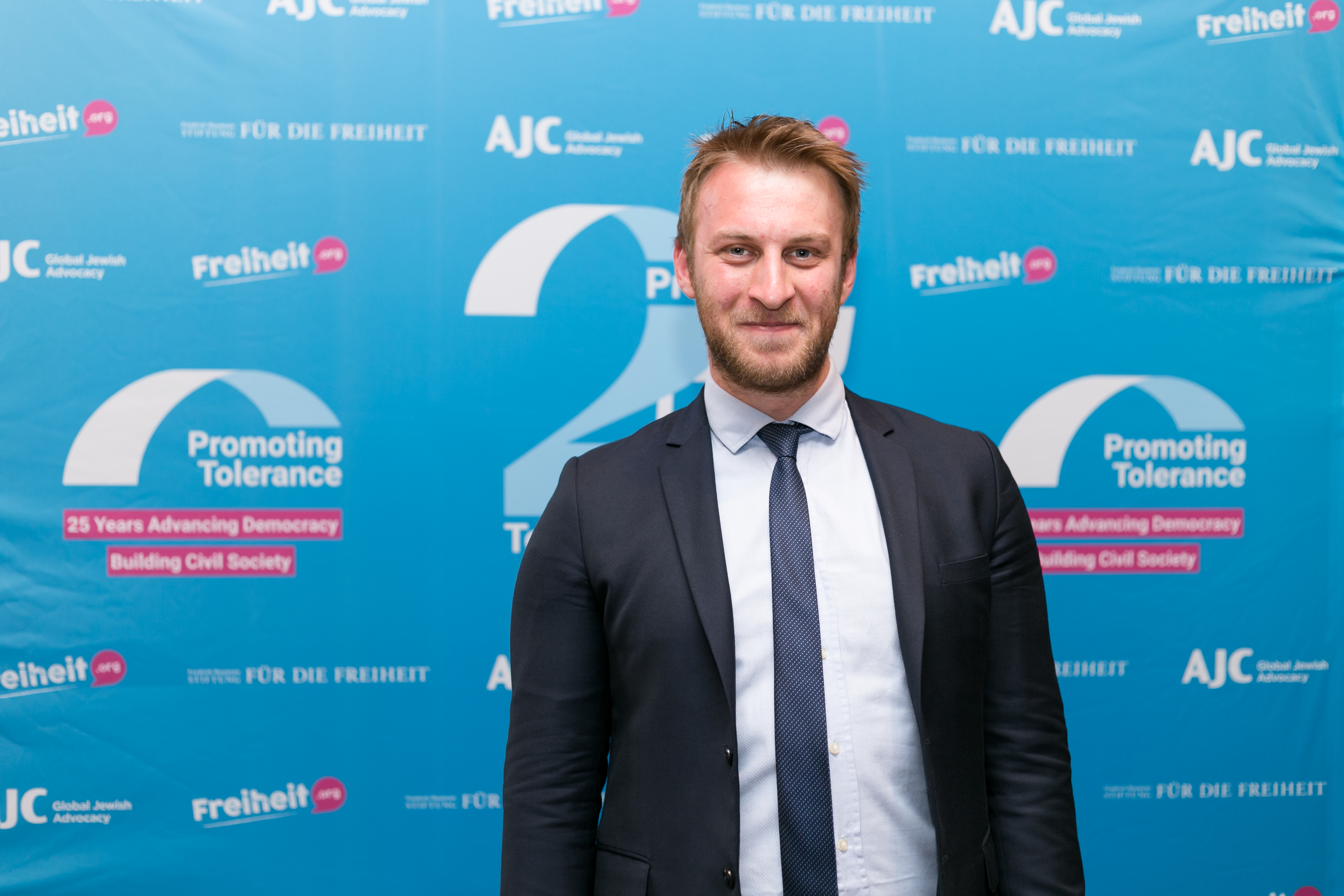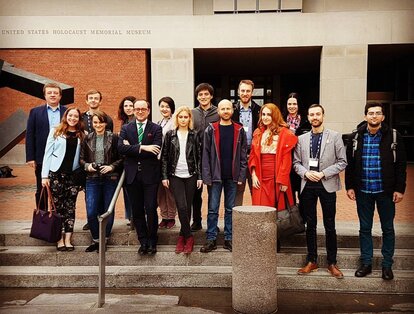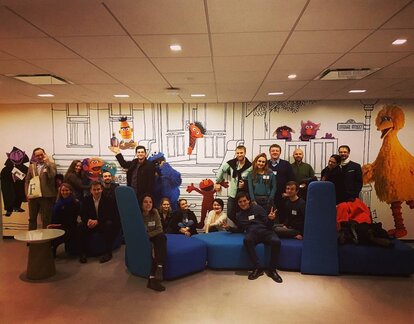Promoting Tolerance Programme in the Eyes of Medeni Sungur

Meet Medeni Sungur- A Voice of Tolerance from Turkey
Promoting Tolerance is an extraordinary effort by AJC and FNF to create stronger bonds among the young leaders of Central/Eastern Europe, Caucasus, Turkey, Central Asia and the US. A demanding experience, the program included mainly three phases after a rigorous selection process. A week long online seminar, a 3-days workshop in Berlin and an 11-day study trip in different parts of the United States. The subsequent phases only unlock upon successful completion of the previous. A total of 15 leaders attended the trip in 2017.

Promoting Tolerance Group at the US Holocaust Memorial Museum
This year's theme was on how to tackle rising populism in the world. This is indeed an important and timely challenge that all liberals around the world should engage with. However, the subject is not easy to swallow. To be able to do that, the USA Trip was designed to include two streams of activities of equal importance: practical level and the professional level.
On the practical level, the overall program included a great deal of direct interaction between participants and different communities in US including host family dinners, visit to Sesame Street Inc., attending ceremonies in temples, visiting museums such as 9/11, Civil Rights and the Holocaust Museums. On the professional level, participants joined several different roundtable discussions with community organizers, prominent journalists, leaders from different walks of public life to discuss in detail a range of topics from human rights advocacy in the UN to how mainstream media should respond to fake news.
The US trip was organized in a way to make the most out of the program, including 4 cities in 4 different states in 11 days. First day started with a visit to the US Holocaust Museum. Both the visit and the meeting after with the historians in the museum had me reflect on how relevant it is today to rethink this massive catastrophe to understand the potential outcomes when the enemies of liberty left unchecked. And this all starts at the level of ideas. When hatred, bigotry, intolerance and authoritarianism takes over liberty, openness and dialogue, we should be alert. In the evening, leaders in the AJC community were generous and kind-hearted enough to extend their warmest welcomes to our group and hosted us at their homes.
On the second day we saw how different faith communities cooperate on addressing the immigrants issue. Later we attended a series of meetings with veteran journalists on fake news and heard the minority voices in the Congress. AJC and FNF have bid the farewells, later that evening, with a warm reception to our group.
Next two days we spent in New York City. In a series of meetings, the group had a chance to see examples of the cooperation between different communities, this time on the practical issues surrounding their daily lives. Rabbi Bob Kaplan of the Jewish Community Relations Center of NY presented the concept of "centrist activism", how to focus on the issues of mutual concern, leaving aside the differences, leveraging upon a window of opportunity for cooperation. That is how Jews and Muslims, Christians and Hindus, African Americans and other groups come together and solve their problems.
The group also visited Sesame Street INC.'s office in NY, to observe how a private initiative can take on the enormous challenge of teaching world's kids to become healthy mentally, physically and spiritually as well as the kind of tools (and approach) they developed.

Promoting Tolerance Group at Sesame Street
NY ended with a great evening at Blue Note Jazz Club. The group departed to four different states to spend the weekend with representatives from AJC's local offices in different states. I went to Atlanta. Atlanta was a fascinating experience for me because of its particular place in the history of civil rights movement. We visited both the Civil Rights Museum and the district Dr. Martin Luther King. We even had a chance to experience this very authentic imitation of Dr King's "I have a dream speech" by a skillful artist at the original Ebenezer Church, his pastoral home. You can see a full recording of the speech below:
"I have a dream" Speech
The groups attended joyful shabbat services in different parts of the country and hosted by generous local families. Here's one from Dallas. To me, this was the golden moment of the overall program. Men and women, standing side-by-side, practicing their religion in the most joyful, passionate and eventful manner possible!Not only the instant charm of the event was gripping, but also it got me thinking about what kind of institutional framework and values would lead to the creation of such free and unusual ways of exercising one's faith. That is important because this does not exist even in Israel, the source of the prayer. Obviously, an open culture of free association between individuals is an imperative to be able to accept LGBTQ rabbis or imams or to see women leading the service, and most importantly, to put the essence of the faith above the appearance.
Shabbat service from Dallas
The group reunited at Chicago for the final three days of the study trip. A nice gesture was staying at the historical Standard Club. The meetings in the next three days focused mainly on the cooperation between different faith, gender and race groups and how they learned to work together.
One of the most valuable undertakings was to see how the society is organized bottom-up in the United States. The key takeaway, in my opinion, was to see the concept of "community" in action and to observe how society operates through communities. What do I mean by that? The US is generally thought to be one of the biggest democratic experiments of our age, and, it is still in the making. However, as the history suggests, it is not an easy one. As this trip proved more than anything, it takes enormous amount of energy to create an environment that you can coexist peacefully with a lot of differences around you.
More often than not, people organize themselves around very practical issues that surround them in real life such as a crack in the local neighborhood sideways, shelter for the animals, homeless people in the area etc. These problems affect, first of all, the immediate neighborhood people are living in, the community, a distinctive societal unit that constitutes the larger society.
That also applies to many of the grander problems as well. Racism, poverty, inequality, corruption. People are confronted with them primarily in the local/community level. That is an enormous advantage to have such a civil culture, especially for heterogeneous societies like the American society, to create bonds between groups that have very difficult characteristics.
Professionally and individually, the program contributed greatly to my life. Professionally, I met great leaders and learned a lot from them. Individually and more importantly, I had a chance to meet with a lot of good people, who are not easy to find, and make friends with them.
Medeni Sungur
Promoting Tolerance 2017 Alumnus
Turkey